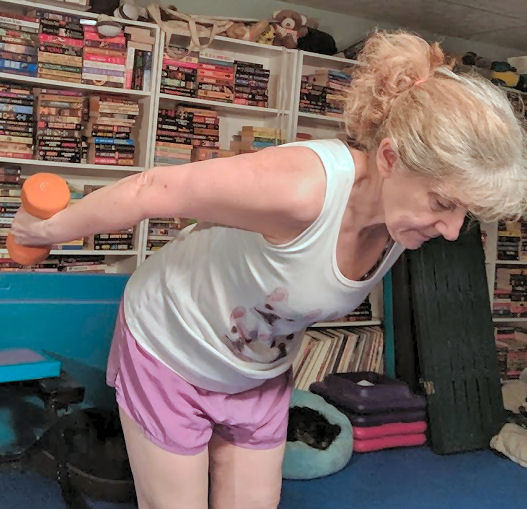A mental block can stop exercise
Is a mental block the thing that’s stopping you from exercising? You know that you need to exercise for your healthy aging. And you have every intention of starting an exercise program. You’ve made a mental note of the exercises you want to do, or the workout video you want to try, but something keeps getting in the way. Every day. For two weeks. Your mindset just isn’t right, and you can’t figure out why it’s so hard. But how does a mental block and exercise link up?
You may even have changed into your exercise clothes, laced up your sneakers, but then you find something else to do. And then it’s time to start dinner. Or get ready for an appointment. And the opportunity to exercise is lost.
How does a mental block happen?
“When talking specifically about exercising — mental blocks are often associated with a lack of motivation that is in turn associated with a lack of vision,” says Dr. Munther Barakat, director of Behavioral Health Therapy at Aurora Psychiatric Hospital, Wauwatosa, WI. “The vision of what it means to exercise and how you measure success has to be clear. This makes it naturally reinforcing.”
Dr. Barakat seems to mean that deep down, you really don’t want to exercise. And I get that. I really, really dislike the act of exercising. I don’t like being sweaty or breathing hard. And when my muscles are shaky, like at the end of an intense aerobic workout, it almost feels like something is wrong. But I work out. I exercise. I push play on my DVD player, cueing up a workout video four or five times a week. Even though I don’t like to do it.
Because I do like the results. I like being able to do things I want to do, when I want to do them – without waiting for help. I like being able to walk anywhere I want. I like being able to train my dogs every day.
Your “measure of success” may be different than mine. And that’s great. Your next step, then, is to picture yourself on the way to that success. Formulate your goals and a path to get there. (I’ve written about goals, how to make them, and how to follow through, before.)
Other causes of mental blocks
Experts at the Sage Neuroscience Center say that another cause of mental blocks can include anxiety. I’ve felt this, certainly. If you’re anxious about something that’s going on in the world – either close to you or on the other side of the globe – this can cause massive indecision. Anxiety can paralyze you into indecision, making it impossible for you to actually do anything.
Another cause can be decision fatigue. You’ve had to make a lot of decisions lately, and making one more – like which exercise program to do – is just one too many. So you don’t make any decision.
Remedies for an exercise mental block
Again, one solution can be to decide on a goal – like exercise four days this week for a half hour, walking and doing a workout video on alternating days. Schedule those workouts for the week. Keep to your calendar – when your exercise appointment comes up, keep that appointment! And on Sunday, schedule next week’s workouts.
If you want to go a bit deeper, get out your journal and write down the things you think are keeping you from exercising. Write down the things you’re anxious about. Sometimes the act of writing helps your brain to process, and helps you think of a solution to your blocks.




